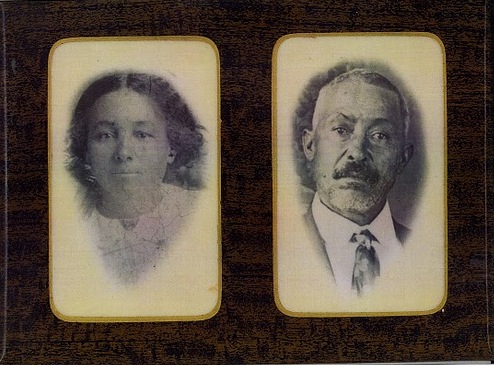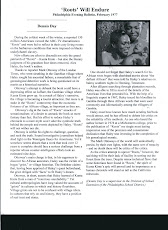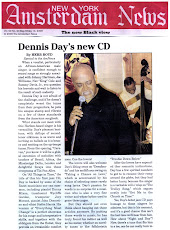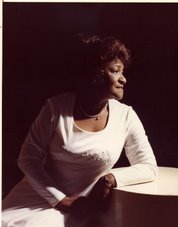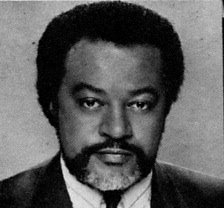In 1975, one of the epochal struggles challenging historical views of identity politics was particularly hard fought in Barack Obama’s home State of Illinois. I was a young staffer assigned to the Illinois Speaker of the House’s Committee on Cities and Villages, where I was privileged to witness first-hand the workings of the political process with its built-in checks and balances. I saw how such a system can alter history’s trajectory or sustain the status quo.
During that turbulent era, the war in Vietnam dominated our politics. Images of flag-draped body bags, jungle fire fights, and air lifts of orphaned Vietnamese refugees flooded our living rooms on the major television networks. On the home front, the introduction of the Equal Rights Amendment (ERA), designed to create gender equality, made its way through the process to be ratified in our U.S. Constitution after incessant philibustering, but fell short when the three states needed to constitute a three-fifths majority – Florida, North Carolina, and Illinois – rejected the initial ERA amendment, curtailing its re-introduction before the U.S. Congress for several years.
Political hardball and cultural wars have long been hallmarks in Illinois, a state historically plagued by its deep regional and racial divides. Political residue from a divisive Civil War and the ensuing Reconstruction period often pitted Northern Illinois special interests against those of Southern Illinois, resulting in shrewd political in-fights between a formidable Richard J. Daly Democratic machine in the state’s urban North and moderate Democrats and their predominately white conservative counterparts from counties in the South. These dynamic demographics forged the rough-and-tumble political milieu in which the young State Senator Barack Obama earned his political stripes as a “post-racial,” organizationally savvy leader, skilled at building unlikely political consensus between liberal progressives and rural conservatives. Ironically, it is precisely the same challenge on a national scale that now presents the greatest challenge to an Obama presidency.
In the mid 70’s Illinois’ Southern and Central districts, bound together by shared agricultural rural economic alliances, were largely committed to conservative, Dixiecrat-style politics of the good-ole’-boy variety. Political loyalties forged by upstate versus downstate regional and cultural values were shaped against a backdrop of big-city democratic progressive political forces led by two dynamic African American political leaders from Chicago’s South Side; the Illinois Senate’s President pro tem, Cecil Partee, and Senator Harold Washington, Chairman of the Judiciary Committee, who within less than a decade would become Chicago’s first black Mayor.
Each day the political drama would unfold and build to a feverish pitch in the Illinois Statehouse as the nation focused its attention on the Land of Lincoln and the political maneuvering willed by upstate Daly loyalists seeking to balance the demands of urban female proponents of the ERA against the conservative tide of well-organized downstate ERA opponents led by the conservative Phyllis Schafley. The media frenzy that shrouded the Illinois Statehouse in those heady days homed in on celebrity activist speakers like Marlo Thomas (of “That Girl” fame and later paramour to Phil Donahue) and Alan Alda, whose top-rated television serial M*A*S*H had given him a high profile and bully pulpit from which to support the ERA.
In 1975 when an anonymous group of staffers, including Illinois legislators, circulated a mock bill to re-name the Playboy Bunny as Illinois State Animal under the pseudonym Rabbiscus Bustus, the mocking good-ole’-boy levity generated by this joke was shared across the Illinois Assembly’s political aisles by a largely male-dominated General Assembly, Democrats and Republicans alike, who would soundly defeat the ERA. The Equal Rights Amendment was intended to address political and economic disparities faced by women, but after multiple attempts, is still not ratified by enough states to become part of the U.S. Constitution.
The mid-70’s drama played out in the Illinois House and Senate chambers pitted rural against urban voters, hawks against doves, bra- and flag-burners against militarists, and blacks against whites, further deepening the divisions between conservatives and liberals. The period was a watershed for the emerging subtext of identity politics – a precursor to today’s so-called cultural wars, which play out in terms of “blue” versus “red” constituencies. In the mid 70’s, nearly a decade after passage of the Civil Rights and Voting Rights Acts of 1965, only one black United States Senator had been elected since Reconstruction; Senator Ed Brooke (R) of Massachusetts. In 1972 there were only 1,469 black elected officials in the United States. By 2000, according to the Joint Center for Political Studies, there were 9,040 black elected officials. In 1975, the U.S. Congress comprised only 4% women, while 10% of all elected officials nationwide were women and 5% of all U.S. mayors were women.
As I look back upon my brief tenure in the service of the Speaker of the House of the Illinois State Assembly, iconic images in my memory capture challenges that linger even after three decades of struggle for equality of opportunity and equal justice under the law for minorities and women. In the Spring of 1975, Comedian Dick Gregory, in a near death-defying act of moral civil disobedience, chained himself to the inner Rotunda of the Illinois State House and waged a heroic fast that nearly ended his life. Phyllis Schafley and Marlo Thomas became poster women for the conservative right and liberal feminism respectively, while Illinois State representative Susan Catania garnered national publicity defying all social norms of the period by bringing her infant child in bassinette on to the floor of the Assembly, discreetly breastfeeding as she passed legislation, arguing that a child needs a nurturing parent.
In this year’s 2008 presidential campaign, once again a media firestorm rages regarding a woman’s role within the workplace and in leadership as Republican Sarah Palin has chosen to accept her party’s nomination for Vice President. Palin’s decision, as a mother of five including a four-month-old infant with Downs Syndrome, has jolted more than a few Good Ole Boys, even among media pundits concerned over a mother’s capacity to serve as both leader of the free world and a sufficiently loving, attentive mom. Critics have been quick to point out that the question of whether a father is capable of the same would never be broached in a major election. Thus, the cultural wars continue.
The ERA was never fully ratified, yet women have made steady gains in the realm of politics and other fields of human endeavor. The last laugh in 2008 may be on that generation of anonymous good old boys who constitute that viral resistant strain of irrational racism and debilitating chauvinism that threatens to derail the great American experiment. They will have to get over it and select either an African American man as President or a self-proclaimed hockey mom as Vice President. To close with a cliché from the 70’s I’ll simply say on behalf of each of these historical candidates – You’ve come a long way, baby!
